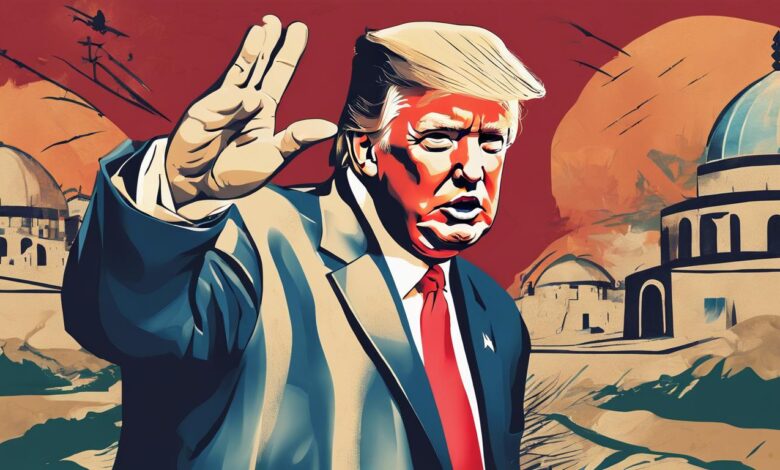Trump calls for peace in Gaza, signaling potential shift in stance towards Israel

Former President Donald Trump has urged Israel to ‘stop killing people’ in Gaza, marking a significant change in his previously staunch support for Israel, amidst speculation of future US foreign policy shifts and accountability calls in ongoing Israel-Gaza tensions.
Former President Donald Trump has recently voiced his concerns over the conflict in Gaza, urging Israel to “stop killing people” and advocating for peace. This statement marks a notable change in tone for Trump, who has historically been a strong supporter of Israel. In an interview, Trump expressed distress over civilian casualties in Gaza and criticized the release of videos showcasing the conflict’s destruction. Despite his campaign team’s denial of any policy change, Trump’s comments have led to speculation about a potential shift in his stance towards Israel.
Meanwhile, Richard Grenell, a former ambassador to Germany during Trump’s presidency, is speculated to potentially serve as Secretary of State if Trump wins the upcoming election. Grenell, known for his alignment with Trump’s “America First” policy, has been criticized for his confrontational stance and social media presence, which some argue may impact US foreign policy and relationships with allies if he were appointed.
In Israel, two senior Israeli military officers have been dismissed in response to the deaths of seven aid workers in Gaza caused by a mistaken drone strike. The Israel Defense Forces (IDF) described the incident as a “grave accident,” resulting from a misidentification of the aid convoy for Hamas militants. The strike prompted criticism and calls for accountability from the international community. Following the event, the IDF admitted to serious failures and opened the possibility for criminal prosecutions against those responsible, amid wider calls for an independent investigation into the incident.
These unfolding events offer insights into potential shifts in US foreign policy, the implications of leadership choices in the Trump administration, and the ongoing humanitarian and political challenges in the Israel-Gaza conflict.








